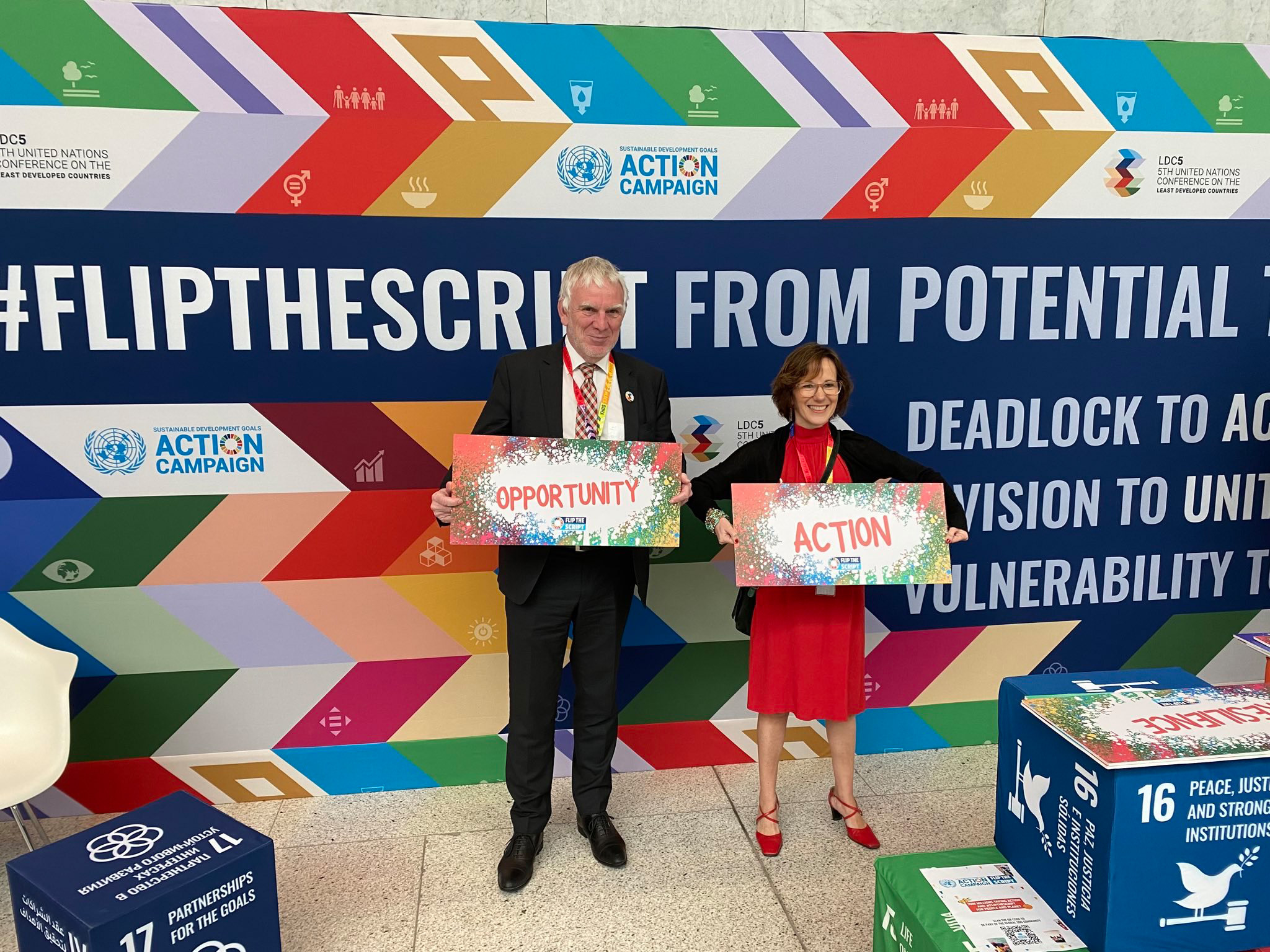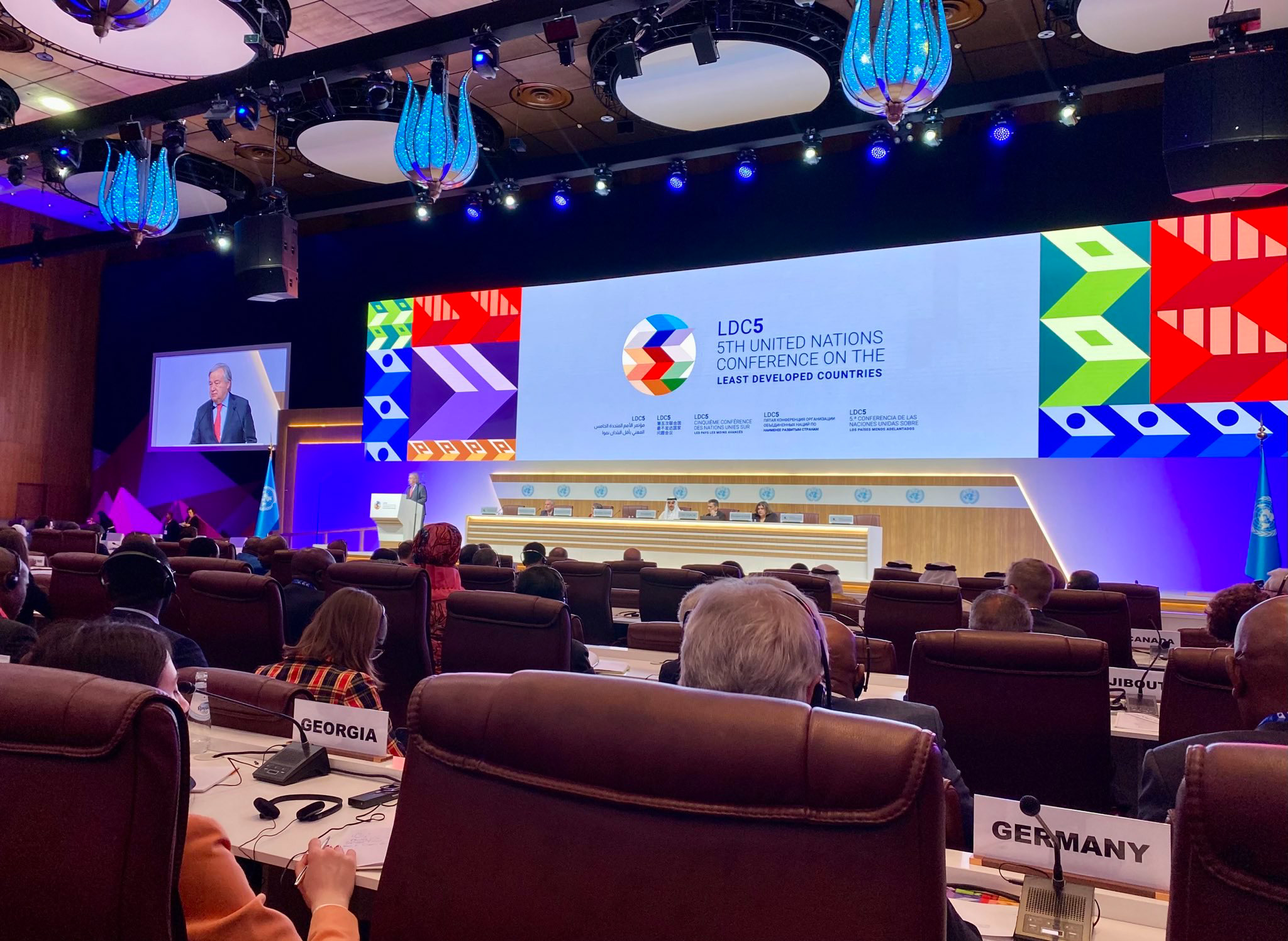UN Conference on Least Developed Countries German Development Ministry increases support for poorest countries
Flasbarth said, “The poorest of the poor did not cause the major crises of our times, but they suffer most from them. That goes for challenges from climate change all the way to the rise in food prices caused by Russia's war of aggression against Ukraine. This means that the wealthy countries have a responsibility to do more for the least developed countries. This must not be limited to short-term assistance. What is needed, above all, is long-term support so they can build resilient infrastructure and food systems. The German Development Ministry wants to further increase its involvement in this field in the future.”
The extra funding brings the BMZ's 2023 budget for multiannual projects in LDCs to a total of 1.4 billion euros. Most of this funding is envisaged for countries in Africa. The international community has agreed that wealthy countries should dedicate 0.2 per cent of their gross national income to development cooperation with LDCs. Through the latest increase of the relevant funding in the BMZ's budget, Germany has not yet reached this target but is taking a significant step towards that goal. In 2020, the assistance-to-GNI ratio of Germany's spending on LDCs was 0.15 per cent.
Another important issue at the conference in Doha was private sector engagement in LDCs. In a statement, State Secretary Flasbarth underlined that nine in ten jobs in developing countries and emerging economies are created in the private sector. There is thus a need for increased private investment, especially with a view to supporting the development of climate-adapted infrastructure.
United Nations Secretary-General António Guterres at the opening of the Fifth United Nations Conference on the Least Developed Countries (LDC5) in Doha
Every ten years, the United Nations holds a conference on the LDCs in order to negotiate an action programme comprising political agreements and international support measures. There are currently 46 LDCs worldwide. They are home to a total of 1.1 billion people. Even though these countries account for 13 per cent of the global population, their share in global GNI is only 1.3 per cent. According to the United Nations definition, a country is an LDC if per capita GNI is below 1,025 US dollars a year, infrastructure is poorly developed and the country is confronted with structural impediments to economic development.

